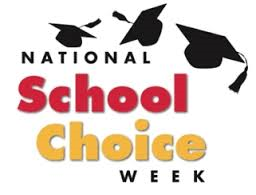Editor’s note: National School Choice Week runs from Jan. 21- 27. Organizers expect 3,812 events in Florida this week.
by Andrew R. Campanella
 Without question, school choice is redefining education in America.
Without question, school choice is redefining education in America.
Throughout America today, more parents are actively choosing education environments for their children than ever before.
Over just the last decade, the variety of choices available for families has increased dramatically. From open enrollment programs in traditional public schools to public magnet schools, public charter schools, online learning, private schools and homeschooling, school choice is now a reality for tens of millions of families, not just an idea.
The result is that students are matched with schools and education environments that meet their needs, and because of that, more children are being inspired to pursue their interests. When kids feel motivated to wake up and go to school in the morning, we know we’re headed down the right path.
At the same time, the term, “school choice,” is also being redefined – in a good way.
Americans now understand that school choice is not about elevating one type of school above another, but represents an opportunity for parents to make decisions for their individual children.
One of the benefits of this redefinition is that many traditional public schools, and public school districts, are embracing the concept of empowering parents with options. More than that: they are proud of the strides they’ve made toward educating and inspiring children and they welcome new opportunities to raise awareness about this success.
During National School Choice Week this year, a record number of public school districts and traditional public schools are participating. These schools and districts are using the week as a chance to promote their schools, the programs within their schools, and the district-level options and choices available to families.
Large public school districts in several states are holding school fairs during the week, and dozens of others are participating in multi-sector school fairs and events.
Over the last few years, I’ve visited with district-level administrators in several states. In these meetings, I saw committed educators who are confident in their community’s schools, and eager to participate in any effort that would make parents more aware of the public-sector options available to them.
From my perspective, this is essential.
I still remember the day, before I enrolled in kindergarten, when my mother took me to visit several different schools in my New Jersey hometown. After visiting schools and talking with teachers, we chose our local traditional public school for me. I remained there for twelve grades, and I’m a proud public school graduate.
I recount this experience because I know it is the story of many families: traditional public schools were an active choice for them. And as a result, I firmly believe that any discussion of school choice must include traditional public education – along with public magnet schools, public charter schools, online academies, private schools, and homeschooling – so that families understand the breadth of options they have.
I’ll be honest: it stings when people reflexively think that anyone who raises awareness about school choice must be involved in an effort to undercut public education. It stings because it’s the opposite of my personal experience and because of the depth of gratitude that I have for the many incredible teachers who, along with my parents, helped guide my on my own educational journey. Most importantly: it stings because it simply isn’t true.
The way to elevate public education in America is for even more public schools and school districts, not fewer, to participate in celebrations like National School Choice Week.
With even greater public-sector participation in nonpartisan, nonpolitical awareness efforts like National School Choice Week, our expanding the definition of education can lead to an even greater rediscovery, among parents, of the options available for their children.
In the end, that means more children, in more communities, will be inspired, motivated, and challenged to pursue their dreams. It’s a uniquely American promise, and we can work together to turn that promise into a bright new reality.


